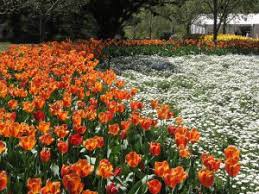Feng Shui, the ancient Chinese art of harmonizing human environments with the natural world, has been used for thousands of years to design spaces that promote balance, prosperity, and well-being. One of the most important elements of any building, including palaces, is the staircase. In Feng Shui, staircases are not just physical structures; they symbolize the movement of energy (Chi) through a space and play a crucial role in influencing the atmosphere and fortune of a palace. This article delves into the significance of staircases in palace Feng Shui design, exploring their symbolic meanings, placement, design elements, and the impact they have on the overall energy flow of the space.
The Symbolism of Staircases in Feng Shui
Staircases are powerful symbols in Feng Shui, representing the dynamic movement of energy. According to traditional beliefs, they serve as a link between different levels of a structure, both physically and energetically. In palaces, where the flow of Chi is especially important, staircases are designed with careful consideration to ensure that they do not disrupt the harmony of the space.
- Connection Between Heaven and Earth In Feng Shui, staircases symbolize the connection between heaven and earth. This is especially relevant in palace designs, where different levels represent different aspects of existence—spiritual, physical, and material. The movement between these levels should be smooth and harmonious, with the staircase acting as a conduit that allows Chi to flow between the upper and lower parts of the palace. In this context, the staircase is often considered a bridge between the material world and the spiritual realm, influencing the fortune and well-being of those who reside within the palace.
- Movement of Chi Staircases are crucial in the flow of Chi throughout a building. As Chi moves upwards or downwards, it is said to carry with it both positive and negative influences. A well-designed staircase helps ensure that the Chi flows smoothly and evenly throughout the space, promoting balance and prosperity. In contrast, a poorly designed or obstructed staircase can disrupt the flow of Chi, leading to stagnation, imbalance, and even negative consequences for the palace’s residents.
Placement of Staircases in Palace Feng Shui
The placement of staircases in a palace is of paramount importance in Feng Shui. The ideal location for a staircase depends on several factors, including the overall layout of the palace, the direction in which it faces, and the desired effect on the inhabitants’ fortune and well-being. Here are some key considerations when placing staircases in palace designs:
- Avoiding the Center of the Palace In Feng Shui, it is generally considered inauspicious to place a staircase in the center of the palace, also known as the “heart” of the building. The center represents stability and harmony, and placing a staircase here can disrupt the flow of Chi, causing imbalance and instability. Instead, staircases should be positioned at the edges of the palace or in areas that do not interfere with the main flow of energy.
- Facing the Right Direction The direction in which a staircase faces is also crucial. In Feng Shui, certain directions are associated with positive qualities, such as wealth, health, and success. For example, the east is often linked with new beginnings and family harmony, while the south represents fame and recognition. Ideally, the staircase should face one of these auspicious directions to enhance the overall energy of the palace. If the staircase faces a less favorable direction, it may lead to misfortune and negativity.
- Avoiding Stairs that Lead Directly to the Front Door It is considered inauspicious to have a staircase that leads directly to the main entrance of the palace. This is because Chi is believed to enter through the front door with great force, and a staircase positioned directly in its path can cause the energy to rush up or down too quickly, disrupting the flow of energy and creating imbalance. To remedy this, designers often place a hallway or another room between the front door and the staircase to slow down the flow of Chi.
- Staircase Location and Bedroom Placement Another important consideration in palace Feng Shui is the relationship between the staircase and the bedrooms. Ideally, staircases should not lead directly to the bedrooms, as this can cause the Chi to be disturbed by the constant movement of energy. If a staircase must lead to the sleeping quarters, it should be placed in such a way that it does not directly face the bedroom doors, ensuring a peaceful and restful environment.
Design Elements of Staircases in Feng Shui
The design of a staircase plays a crucial role in how energy moves through a palace. Several design elements influence the flow of Chi, including the shape, size, materials, and aesthetics of the staircase. Here are some key design considerations from a Feng Shui perspective:
- Shape of the Staircase The shape of the staircase is one of the most important Feng Shui considerations. Curved or spiral staircases are generally preferred over straight ones, as they allow the Chi to flow more smoothly and naturally. Straight staircases, especially those with sharp corners, can cause Chi to rush too quickly, creating a sense of chaos and imbalance. Spiral staircases, on the other hand, are believed to encourage a gentle, harmonious flow of energy that supports health, wealth, and well-being.
- Width and Size of the Staircase The width of the staircase is another important factor in Feng Shui. A staircase that is too narrow can restrict the flow of Chi, making it difficult for energy to circulate freely throughout the space. Conversely, a staircase that is too wide may cause the energy to disperse too quickly, leading to a lack of focus and direction. The ideal staircase should be proportionate to the size of the palace and designed to facilitate a balanced, even flow of energy.
- Materials Used for the Staircase The materials used in the construction of the staircase can significantly impact the flow of Chi. In Feng Shui, natural materials such as wood and stone are considered auspicious, as they help ground the energy and create a stable foundation. Wood is associated with growth and vitality, while stone is linked to strength and endurance. Avoiding materials that are too artificial or synthetic is essential, as they can disrupt the natural flow of energy.
- Color and Aesthetics The color of the staircase should also be chosen with care. Colors have specific associations in Feng Shui, and each hue can influence the energy of the space in different ways. For example, earth tones such as beige or brown promote stability and grounding, while lighter shades like white and cream can create a sense of openness and clarity. Red, a color that symbolizes prosperity and vitality, may also be used in the design of the staircase, particularly in royal palaces, to invite wealth and good fortune.
Staircases and the Flow of Chi in Palaces
Staircases are not only practical features of a palace but also serve as conduits for Chi, directing the energy throughout the building. The design and placement of staircases can significantly impact the overall energy of the palace, influencing the health, prosperity, and well-being of its inhabitants.
- Energy Flow and Movement A well-designed staircase encourages the smooth movement of Chi throughout the palace, facilitating the flow of positive energy to different levels. The staircase should not be too steep or abrupt, as this can create a chaotic flow of energy. Instead, a gentle incline and smooth transitions help maintain balance and harmony, allowing Chi to circulate freely without obstruction.
- The Role of Staircases in Creating Balance In Feng Shui, balance is key to a harmonious environment. The staircase should not dominate the space or overpower other design elements. Its placement and design should complement the overall layout of the palace, creating a sense of unity and flow. A staircase that is too ornate or imposing may disrupt the balance of the palace, while a simple, elegant design can contribute to a peaceful and harmonious atmosphere.
Conclusion
In conclusion, staircases play a vital role in the Feng Shui design of palaces. They are not merely functional elements but are symbolic of the movement of Chi throughout the space. The placement, design, and materials used for the staircase can significantly impact the overall energy of the palace, influencing the health, prosperity, and fortune of its inhabitants. By following the principles of Feng Shui in the design of staircases, it is possible to create a space that supports positive energy flow, harmony, and balance, ensuring that the palace remains a place of peace, stability, and success for generations to come.


